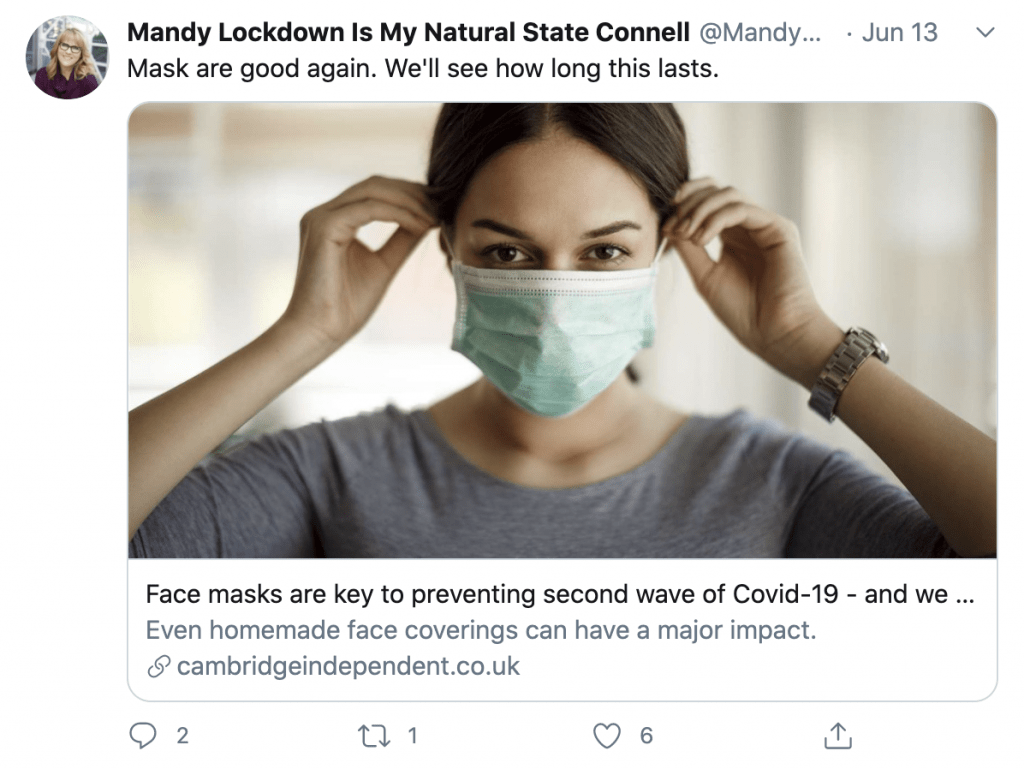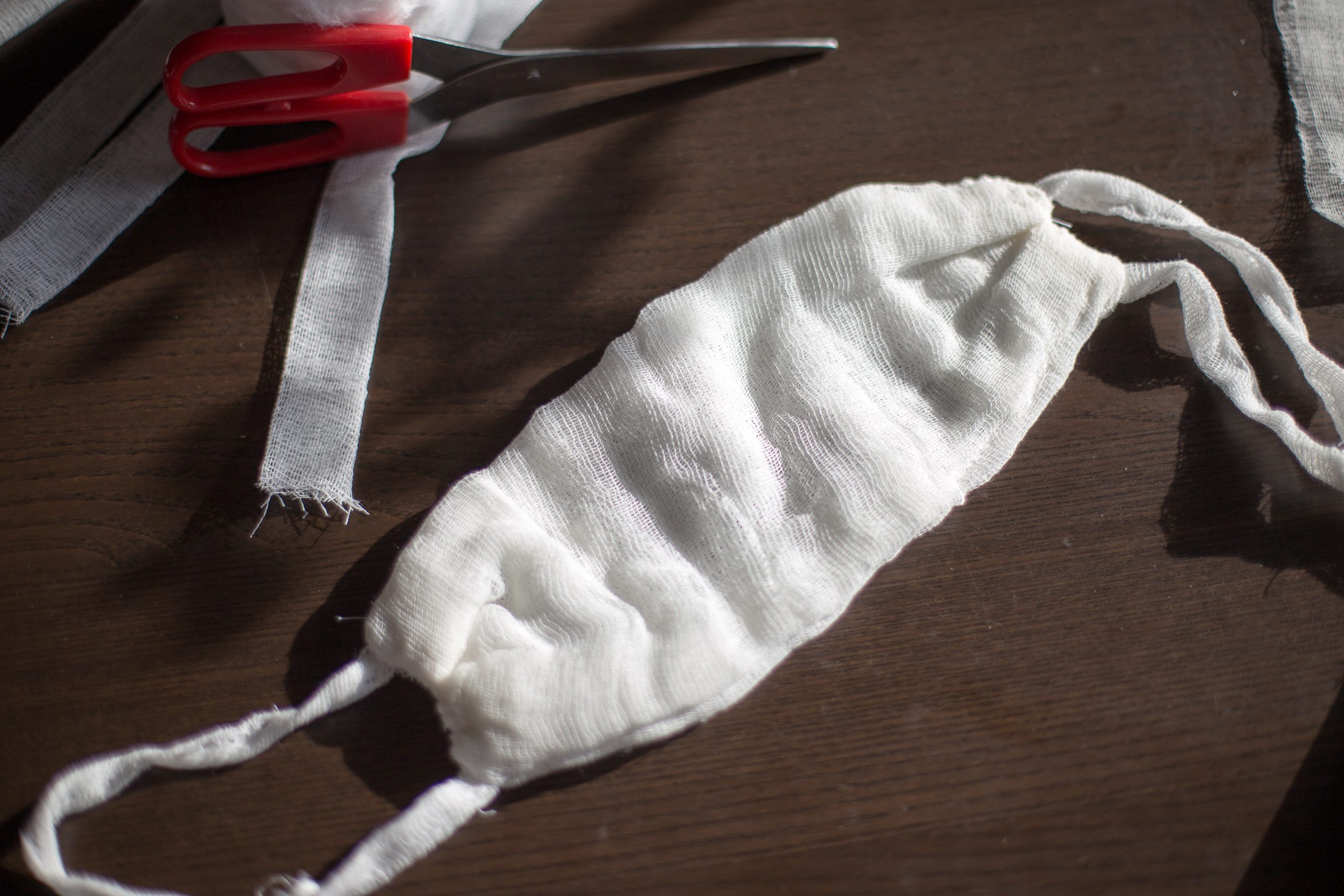Conservative KOA radio host Mandy Connell said June 10 that face masks are unhelpful and uncomfortable as preventive measures for COVID-19.
She later specified in an email to Colorado Times Recorder that she is only skeptical of non-medical, fabric masks. She believes that surgical masks are effective against COVID-19 when “used properly and consistently.”

“It’s not protecting a damn soul. I hate masks,” Connell on her KOA 850-AM show. “As soon as I step out of the building that requires me to wear a mask, that thing is coming off.”
Connell said that her views are backed by an unidentified “outstanding” family doctor who told her that “masks are stupid.”
Do Fabric Masks Work?
Connell cites a WHO publication on June 5 to further back her view. It states that “at the present time, the widespread use of masks by healthy people in the community setting is not yet supported by high quality or direct scientific evidence and there are potential benefits and harms to consider.”
“At the present time, the widespread use of masks by healthy people in the community setting is not yet supported by high quality or direct scientific evidence and there are potential benefits and harms to consider.”
The World Health Organization (WHO)
Nevertheless, both the WHO and the CDC encourage the public to wear cloth masks when surgical masks are not available.
According to the CDC, which cites multiple studies, cloth masks are important in public settlings where social distancing is difficult to maintain. These can include grocery stores, public transportations, and pharmacies.
This is because the virus mainly spreads through respiratory droplets produced when an infected person coughs, sneezes, or talks. If inhaled or contacted by these droplets, individuals will be at risk of contracting COVID-19.
The CDC believes that even a cloth mask has some ability in blacking some of those droplets.
“To prevent COVID-19 transmission effectively in areas of community transmission, governments should encourage the general public to wear masks in specific situations.”
The World Health Organization (WHO)
Connell questions the accuracy of the WHO’s statements.
As evidence for the WHO’s lack of credibility, she points to the fact that WHO debunked its own claim that asymptomatic carriers are a major source of transmission
On the other hand, the effectiveness of surgical masks against COVID-19 is widely recognized and approved by scientific researches, says Connell.
Connell endorses the use of surgical masks.

Potential Risks
Both the WHO and the CDC acknowledge that masks can impose risks under special circumstances.
WHO cautions that masks can lead to “potential self-contamination if they are not changed when wet, soiled or damaged.” They can also create a “false sense of security, leading to potentially less adherence to well recognized preventive measures such as physical distancing and hand hygiene.”
The CDC also advises that “children under age 2” and “anyone who has trouble breathing, or is unconscious, incapacitated or otherwise unable to remove the mask without assistance” should not wear a fabric mask.
Connell states that all masks are ineffective when worn improperly, such as when worn under the nose or tucked under the chin.
Learn how to wear masks safely here.
Aside from reputing the effectiveness of fabric masks, Connell also commented on their lack of comfort.
“I have officially reached a point in the mask-wearing situation where I feel like I’m living on another planet with not enough oxygen,” she said. “It takes me down to 80% oxygenation.”
While acknowledging discomfort as a downside of wearing a mask, experts believe that its effectiveness in slowing COVID-19 should outweigh the discomfort.
“That being said, as I am a rule follower, I am wearing a mask when indoors but not when outdoors,” said Connell, who previously removed misinformation about the danger of mask-wearing from her blog.




